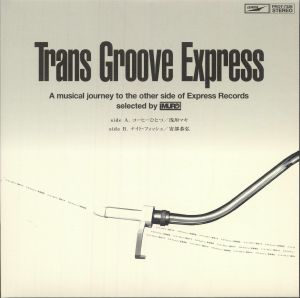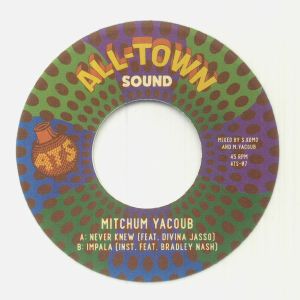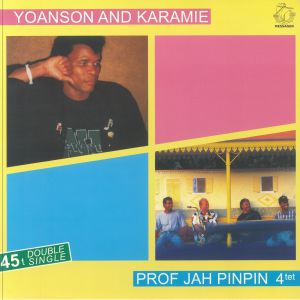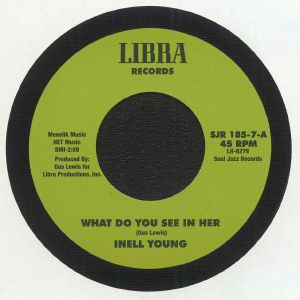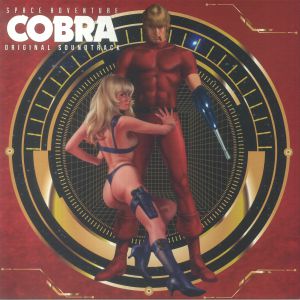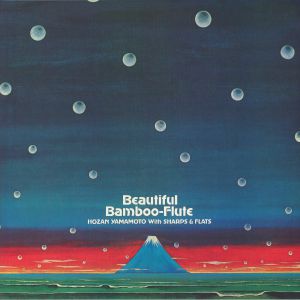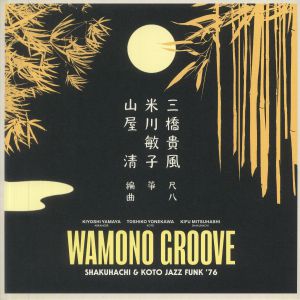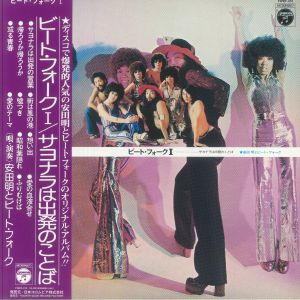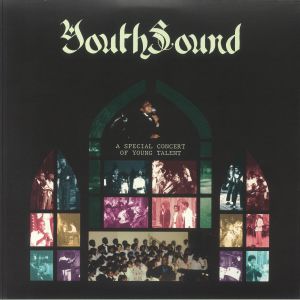Filter
Stock
Type
Artist
Label
Featured
Release Title
Price
Tags
Back catalogue: All genres
Juno's full catalogue of All genres
Singles
Review: Both of these funk gems are taken from a cult compilation Trans Groove Express, which explored the sounds of Express Records and was assembled by MURO. Fourth Wave now serve them up on a superb 7", starting with Maki Asakawa. 'Hohi Hitotsu' is a delightfully gentle and subtle dub with funky guitars adding movement while the sultry vocal soars. Yasuhiro Abe's 'Night Fish' is a brighter and more retro 80s soul and boogie sound with glowing chords and snappy hits. The Japanese language vocal is emotive enough to mean plenty without understanding the meaning of the words.
… Read more in stock $23.52
in stock $12.16
Review: There is scant little information out there about Yoanson & Karamie. What we do know is that they were young artists from the French African diaspora who met with Nessim Saroussi and his label Ness Music in the late 80s and were encouraged to record the music presented here. It is their only official EP and it is a brilliant mix of Afro-tropical percussions, disco, electro and vocals that call to mind the likes of Arthur Russell. Philippe de Lacroix-Herpin is the man festered here as Prof Jah Pinpin and he brings some of his signature saxophone brilliance to flipside jaunt 'The Final Bird (Le Temps D'une Vie)'.
… Read moreIntérprete: Charles Maurice
in stock $16.32
Review: Inell Young's What Do You See In Her is often said to be one of the most powerful soul songs to have ever come from the great New Orleans scene. Eddie Bo is of course the great man behind it - as he was so many of these great tunes from this place and this ear - with the voice of Inell adding the spice. Finding an original is hard as, and will also cost you very close to four figures, so snap this one up while you can. Both sides are pure gold.
… Read moreIntérprete: Marc Hype, Juno Recommends Soul
in stock $13.56
Álbumes
Space Adventure Cobra (Soundtrack) (reissue) (3xLP box set + booklet)
Cat: WAYOV 021. Rel: 27 Mar 23
Soundtracks
Review: Those interested in Japanese cartoons should know Space Adventure Cobra. First broadcast in 1982, it is now considered one of the country's finest animated TV series. This triple-vinyl box set celebrates Kentano Haneda and Yuji Ono's music from the series, combining compositions featured on the show with unheard extended versions and tracks that never made the cut first time round. Musically, it's a mix of Japanese disco, sax-sporting lounge jazz, jazz-funk, neo-classical movements and eccentric interludes, all doused in layers of cosmic dust and stargazing colour. The release also comes packaged with a 12-page booklet telling the story of the series and the making of the appealing, endlessly entertaining soundtrack.
… Read more in stock $96.54
Review: In 2002, the Japanese government recognized bamboo flute maestro Hozan Yamamoto as a "living national treasure". It was in honor of his lengthy career in music, and in particular the way he championed a traditional Japanese instrument even when he was turning his hand to Western music. "Beautiful Bamboo Flute", an album first released in 1971 and almost impossible to find since, is a superb example of this. It sees him deliver haunting, emotional and life-affirming solos over funky jazz, big band and fusion backing tracks that tend towards the fresh and funky. It's an unusual blend, but also an invigorating and exciting one.
… Read more in stock $22.68
Wamono Groove: Shakuhachi & Koto Jazz Funk '76 (180 gram vinyl LP)
Cat: 180GWALP 04. Rel: 27 Jan 22
Jazz
Review: Unlike previous instalments in the 180g label's Wamono series, this isn't a compilation in the strictest sense of the term, but rather a retrospective. It showcases a range of killer jazz-funk and rare groove tunes recorded at Nippon Columbia studios in the mid 1970s by arranger Kiyoshi Yamaya, koto legend Toshiko Yonekawa and shakahuchi master Kifu Mitsuhashi. Highlights come thick and fast throughout, from the mellow, slow-burn lusciousness of 'Nanbu Ushioi-Uta' and the up-beat, guitar solo-laden brilliance of 'Hohai-Bushi', to the all-time Japanese jazz-funk classic that is 'Saitaro-Bushi' and the solo-laden brilliance of 'Asadoya Yunti', whose dazzling Fender Rhodes solos are reminiscent of the early '70s work of the late, great Billy Preston.
… Read more in stock $28.49
Review: 'Sayonara Ha Syuppatsu No Kotoba' roughly translates as "Goodbye is the Word for Departure" and is a striking blend of Japanese indie and folk music. The album combines rich acoustic melodies with introspective lyrics to make for often poignant and nostalgic atmospheres with Yasuda's emotive voice at the heart of the sounds. The band's intricate instrumentation reveals more with each listen and the record explores themes of departure, self-reflection and the bittersweet nature of transitions. They might sound heavy but the delicate soundscapes also capture both moods of vulnerability and resilience which adds to the tender, affecting nature of the record.
… Read more in stock $41.21
Review: The spirit of the lord is strong in this recording from May 2, 1982 when the Youthsound Choir and Stage Band performed at Portland's Jefferson High School, with the 100 strong choir ranging from elementary through to high school students. It's a lively, rowdy affair, where the drums power through and the brass lifts your mood and catapults it skywards. You'll certainly know some of the songs - there's a great version of 'The Greatest Love' that so much less sentimental than the original, for instance - but the performances are unique, as is the intimate live atmosphere, captured perfectly here on what was originally a community radio and cable access broadcast.
… Read more in stock $26.83

 USD
USD






